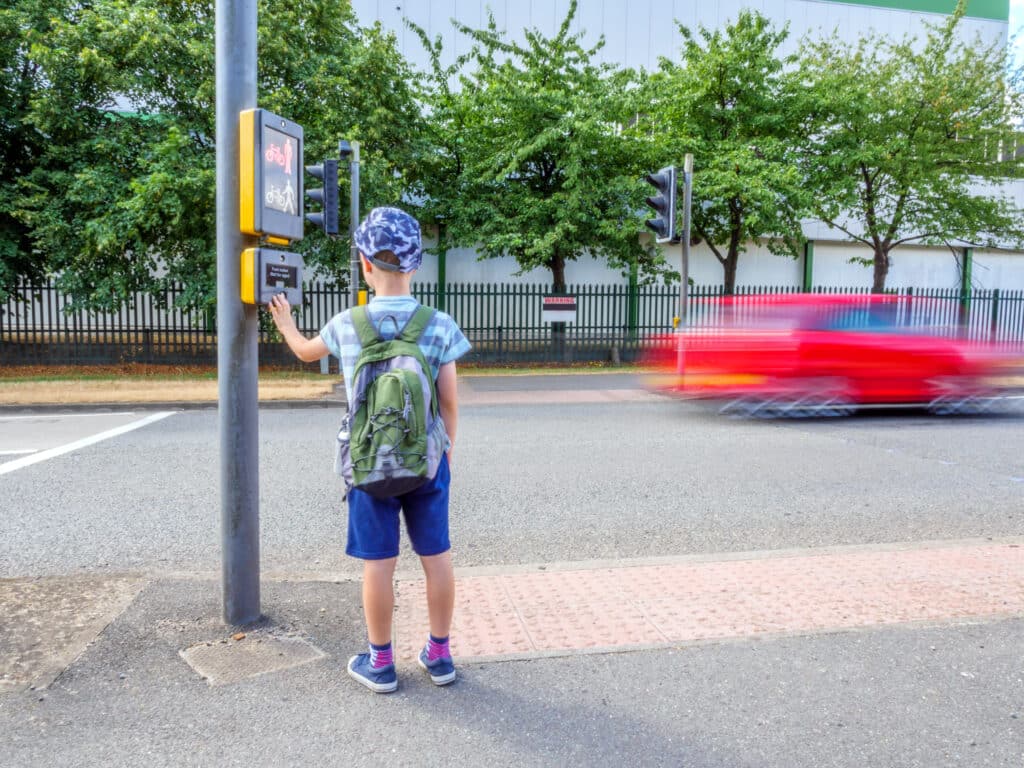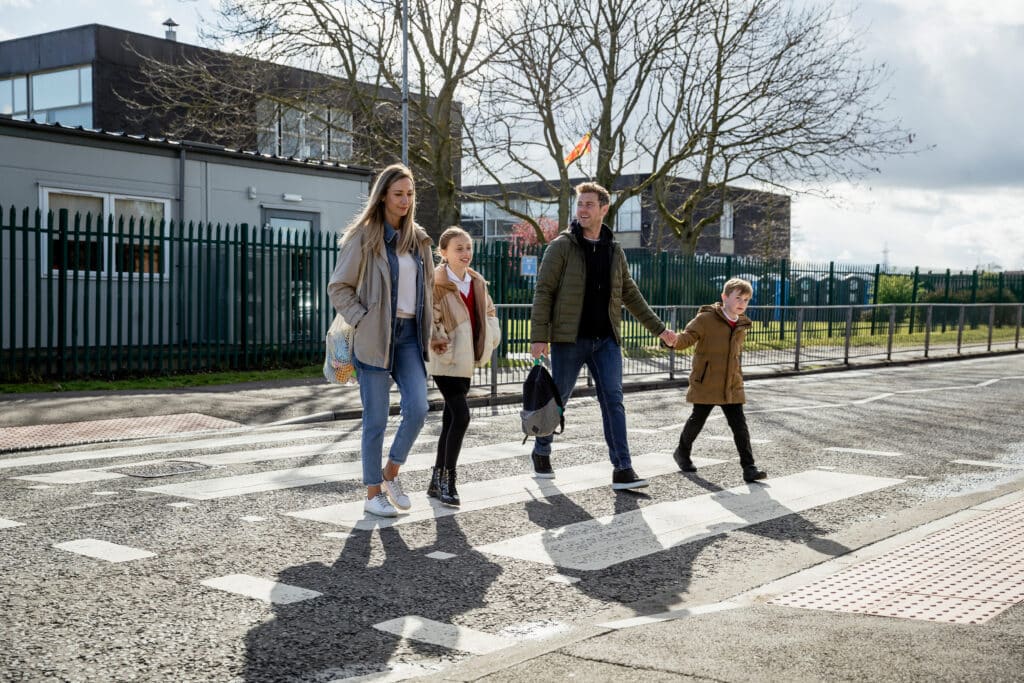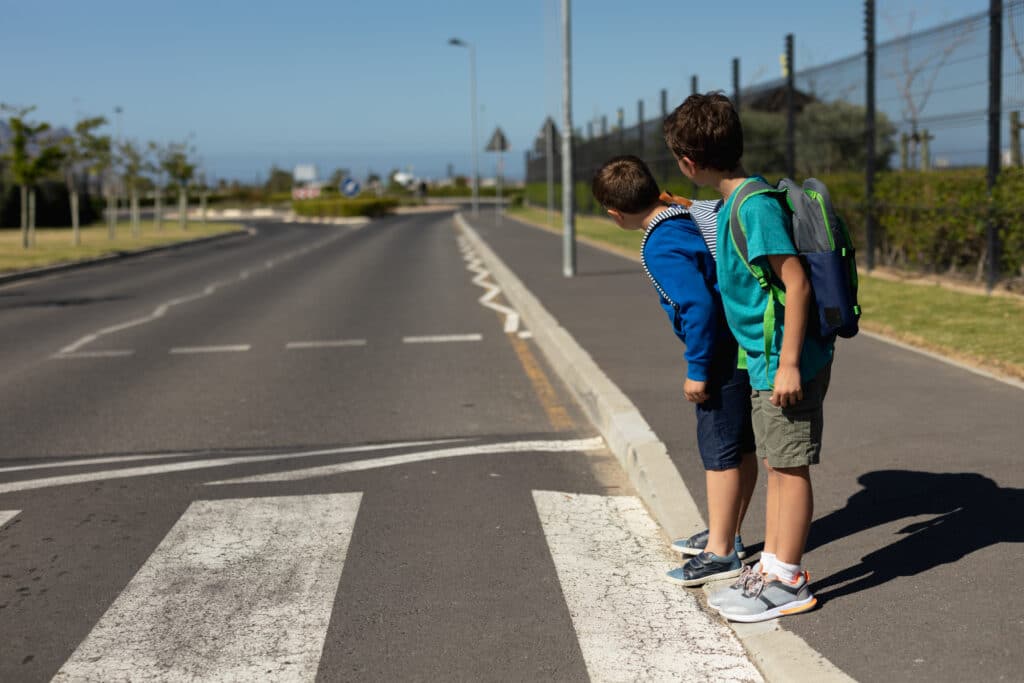Understanding the challenge
The Road Safety Foundation (RSF) has launched a pioneering research initiative exploring how neurodivergent children experience and navigate the road environment. Funded by the Road Safety Trust, the project seeks to build a stronger evidence base to understand the specific challenges faced by neurodivergent children and young people, and to identify practical measures that can make journeys safer, calmer, and more inclusive.
Neurodivergence includes conditions such as autism, ADHD, dyspraxia, dyslexia, and others that affect how individuals process information, perceive risk, and respond to sensory experiences. While road design has for some time included consideration of physical disabilities, the needs of neurodivergent people have not yet been widely understood.


Initial evidence gathered by the RSF suggests that for some neurodivergent children, using roads can be particularly challenging. Traits such as impulsivity, sensory sensitivity, anxiety, or difficulty judging distance and speed can influence how safely and confidently they travel. In a pilot questionnaire conducted in 2024, two-thirds of neurodivergent respondents said that the way they process information or experience their environment affected their safety on the road. Over half reported being involved in a collision or near miss, and some described avoiding school or work journeys entirely due to anxiety.
These findings point to an inequity in access to education and opportunity – one that this new project aims to address through research, collaboration, and design innovation.
A collaborative research effort
Led by the RSF Executive Director Dr Suzy Charman, the project brings together a multi-disciplinary team with expertise spanning road safety, psychology, inclusive design, and neurodivergence.
Partners include the University College London Centre for Transport Studies, the Royal College of Art’s Helen Hamlyn Centre for Design, the RAC Foundation, and independent specialists in autism, dyspraxia, and special educational needs. Local authorities, including Oxfordshire County Council and Safer Roads Greater Manchester, are also involved, alongside Oxford-based charities Mental Health Natters and The Life Space Project, who will help connect the research with families and communities.


Researching the road experience
The project will be delivered in two main phases:
Phase 1 – Discovery will gather evidence through:
- A comprehensive review of existing research and practice
- A large-scale questionnaire comparing the experiences of neurodivergent and neurotypical children and carers
- In-depth interviews and “walk-and-talk” sessions capturing real journeys to school
- Trials of iRAP’s Youth Engagement Application (YEA!), allowing young people to record where they feel safe or unsafe on their routes
Phase 2 – Analysis and interventions will apply the Safe System approach – the internationally recognised framework that designs roads to forgive human error – to consider how infrastructure, education, and local policy can better protect neurodivergent children. This phase will include workshops with experts and practitioners to co-develop practical recommendations for local authorities and schools.
Toward safer, more inclusive roads
A truly safe road system must work for everyone – including those who experience the world differently. As Dr Suzy Charman observes: “For many neurodivergent children, the road environment can feel confusing or overwhelming. This project will help us understand those experiences and identify what changes – large or small – could make a difference.”
Through evidence, engagement, and design, the project aims to improve understanding of neurodivergent children’s needs and inform road safety interventions that support independent mobility, confidence, and wellbeing.
Findings will be shared through reports, workshops, and webinars, helping local authorities, educators, and designers to embed inclusivity into road safety planning.

Contributing to the research
The Road Safety Foundation welcomes input from organisations, charities, and researchers working to improve accessibility and safety for neurodivergent people.
If you have examples, insights, or experience to share please contact:
